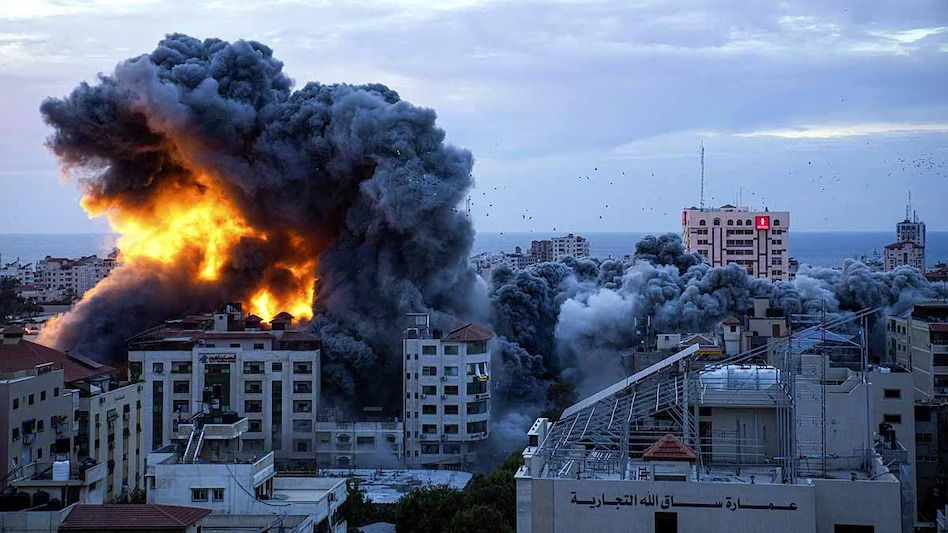NEW DELHI : Iran-backed Hezbollah has launched a barrage of rockets at an Israeli army headquarters days after Tehran made a “maximum level response” warning to Israel. Iran and Israel have engaged in retaliatory attacks at each other’s territories, triggering tensions in the Middle East over fears that the war between Israel and Gaza may turn into a regional war. Lebanon-based Hezbollah is a militant group which is funded by Iran.
The Lebanese group Hezbollah says it has launched drone attacks on Israeli bases north of the city of Acre in retaliation for the killing of one of its fighters, marking the deepest attack into Israeli territory since the Gaza war began.
Hezbollah launched “a combined air attack using decoy and explosive drones that targeted” two Israeli bases halfway between Acre and Nahariyya, it said in a statement on Tuesday.
Iran-Israel conflict is already showing early signs of stress for India Inc — longer deliveries, surging freight rates, higher insurance premiums, extended working capital cycles, and higher costs.
For those yet to feel the heat, there is growing apprehension and nervousness over future developments, observed industry executives.
“One of the primary concerns stemming from the Iran-Israel conflict is the potential for disruption in key maritime chokepoints. Almost 80-85 per cent of the global cargo transported by ships, the shipping company most likely to face the heat. The Strait of Hormuz, a critical waterway through which a significant portion of the world’s oil passes, is located near Iran. Any escalation in hostilities could lead to disruptions in oil shipments, impacting global energy markets and driving up shipping costs. Similarly, the Red Sea, another vital maritime route, could be affected by tensions between Iran and Israel, potentially impacting trade between Europe, Asia, and Africa,” said Mr. Jitendra Srivastav, CEO, Triton Logistics & Maritime.
The conflict also significantly affects air freight operations due to airspace closures, heightened security measures, and market instability. Heightened security protocols further complicate air freight logistics, potentially leading to increased processing times and costs. This disruption may extend to the flow of goods, resulting in delays in exports to Europe. Moreover, sustained conflict could lead to a surge in crude oil prices, directly impacting various commodity prices.
The Iran-Israel conflict casts a shadow over not only the stability of maritime routes and air freight operations but also the resilience of road and railway transportation networks. While these modes of transportation may not be as directly impacted as maritime and air routes, they are nonetheless vulnerable to disruptions, delays, and increased costs stemming from geopolitical tensions in the region, Mr. Srivastav added.


